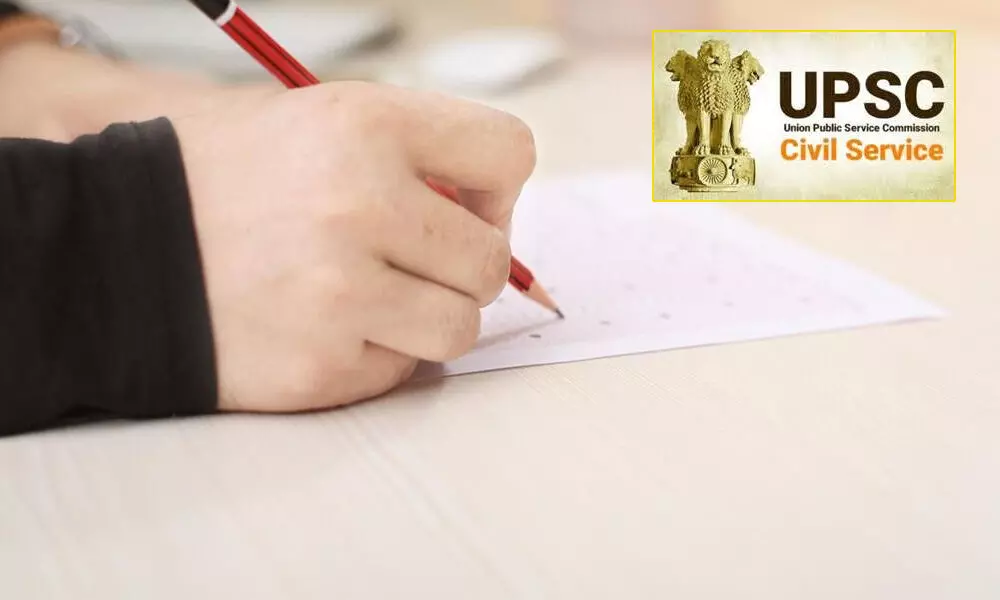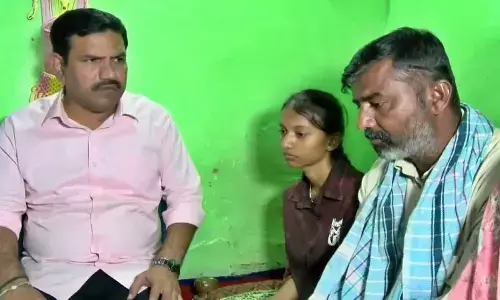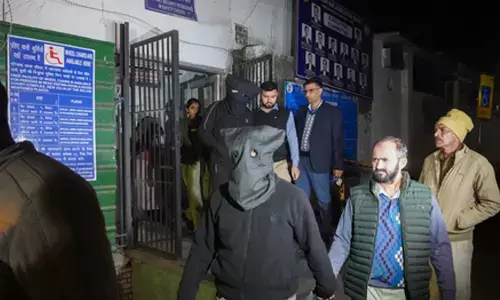Civils Marathon-IV: Prelims dhamaka

Civils Marathon-IV: Prelims dhamaka
We are dedicated to provide quality information to the candidates preparing for the civil services exam with a holistic approach. These articles are intended to improve the skills of the candidate in the following areas:
We are dedicated to provide quality information to the candidates preparing for the civil services exam with a holistic approach. These articles are intended to improve the skills of the candidate in the following areas:
♦ Understanding the subject
♦ Developing self generated ideas
♦ Comprehending the concepts
♦ Newspaper reading
♦ Thorough knowledge on the newspaper editorials
♦ Essay writing practice
♦ Analysis of previous question papers
♦ Coherent answer writing techniques
♦ Interview skills
♦ Overall personality development
All these 10 aspects will be covered during the course of the series. The normal belief is one need to be extraordinarily intelligent to prepare for the civil service examination. It is not a fact. UPSC tests only general intelligence levels. The previous reports of the UPSC published annually show that those who are getting selected or not extraordinary. Another myth is one has to prepare for at least 18 hours a day.
Not at all. One cannot read for 18 hours a day. Successful people generally prepared only for eight hours a day with reasonable breaks that too in the year of examination. If the candidate starts preparation early, he may begin with four hours of preparation. Another myth is one has to have a minimum Post graduation for the civil service preparation.
When we go through the earlier records of results that 80% of the successful candidates are allowed just graduates only. So one need not be a post graduate to compete for the Civils examination. One more belief is that the candidate should be a rich person to prepare for the IAS since it involves lot of money to be spent on coaching. It may happen if the candidate wants to pursue his coaching at Delhi.
It may cost him more. Richness is not an eligibility criteria. If we look at the early results 60 to 70% of the candidates who are cracking IAS are from lower middle class and poor family backgrounds. The common belief is that it takes at least three attempts to get through the civils. It need not be. The total environment depends upon how the candidate prepares for the exam. The strategy preparation will definitely help the candidates to crack in the first attempt itself. If one meticulously designs strategy preparation it may help to crack it in the first attempt.
What to do and what not to do
It is like a Shakespearean dilemma. One must cultivate the habit of doing these things: If it suits you , attend coaching centres if you can afford. Prepare your own notes. Select the printed material available. Make it a habit to have a weekly test. If you have any doubts get them clarified through senior candidates or your own guide. Attempt online grand tests. Attend special lectures arranged by institutes by senior professors and bureaucrats.
Not to do
Do not be under the impression that only Delhi coaching centres will help you. Do not select by merely the volume of books which are available in the market. Don't go by the misinformation circulated by the failed candidates. Do not strain yourself for more than 12 hours. Health is more important. Don't go for unnecessary functions even though they are of family nature.
Reading habit
Candidate should make it a habit to read and assimilate information f rom the magazines published from time to time. Economic and political weekly, Yojana published by publication division both in English and Telugu, Kurukshetra and Hans India and other daily English/ Telugu papers. Reading a newspaper also is an art . Conceptual clarity on various subjects is most important. Basics of Indian political system, administrative system, Indian history, geography, economy and general science are to be mastered. NCERT textbooks from sixth class to 12th class are a must to read. Make your own notes after reading the newspapers, category wise.
For example Supreme Court judgements, parliamentary proceedings, international events, visit of foreign dignitaries, visit of Prime Minister or President of India to other countries, scientific developments, schemes announced by Government of India as welfare measures, sports, foreign relations etc. One should refresh his knowledge by updating the information by reading the dailies. Take a 200 page long notebook and divide it into different segments of your own choice and go on adding information on day today basis. Similarly the important events like announcement of noble prizes, gallantry awards etc are to be remembered. Knowledge about current events is most important. Different schemes undertaken by Government and the progress of these schemes are to be noted down. It will help the candidate both in prelims , mains and personality test.
Basic information
The candidate should have the basic information about all the subjects and cultivate the habit of knowing advance information on the same subject. The writing practice is also to be cultivated. Current issues of national and international importance are to be studied in depth.
Previous question papers
On UPSC website there are so many previous question papers available. Download them and practice them as if you are attending a regular examination. The questioning pattern varies from time to time. Among the seven topics of the prelims exam syllabus one year the questioning maybe with priority on environment and ecology. The other year it maybe on current affairs. So, the candidate should not leave one segment while preparing for the examination. Keep an Atlas in your study room and acclimatise with the geographical positions of each continent and the country. General issues on environmental ecology, biodiversity and climate change require specialisation. During the past years stress was given on the subjects.
Mains preperation
In 2022 the prelims examination is on fifth June and the mains examinations from 16th September onwards so the preparation for both the exams should be done simultaneously. There is only a gap of around 90 days after the prelims examination for mains. So the candidate from the beginning itself has to distribute the time for preparation between prelims and mains.
There is no guarantee that in the first attempt itself one is sure of winning the race. There are three types of candidates appearing for the examination. First one is The person with first attempt. Another one has gone through the drill for three times.
Others belong to the category of last chance. Each one of them has their own mindset and the preparation differs from person to person. The first timer maybe under the impression that it is difficult to get through in the first attempt itself. It need not be. There are several examples that graduates in first attempt itself have scored good marks and were able to appear for the mains. So it is not a hard and fast rule. The lady luck can you smile at any time.
(The author is retired additional director-general Doordarshan, Delhi.)









